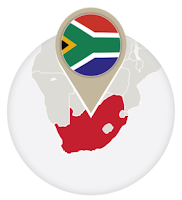Policy
their legislation today could be yours tomorrow

Despite attempts by countries such as South Africa, China and Russia to the contrary, the United Nations has passed a resolution officially condemning government internet shutdowns. In response, Thomas Hughes of human rights organization Article 19 stated, “The resolution is a much-needed response to increased pressure on freedom of expression online in all parts of the world.”

India’s Department of Electronics and Information Technology (DeitY) is working to meet the demands of an ever-changing cyberspace by developing new encryption and privacy policies. Of primary concern are improving data protection and creating a “foolproof and infallible” cyberspace.

Nigeria’s proposed Digital Rights and Freedom Bill has passed a second House of Representatives reading. The bill aims to protect internet access, internet affordability, freedom of information and digital privacy.
Privacy, Surveillance and Censorship
government isn't always on your side

The Bahraini village of Diraz has simultaneously become a place of antigovernment protests, internet shutdowns and mobile phone service disruptions. The lack of access is seen as an attempt to silence demonstrators and prevent images from being shared.

A recent estimate placed the number of active Twitter users in China at 10 million. Although fewer than the originally estimated 35.5 million users and only a fraction of Twitter's global user base of 310 million, the fact that there are users at all in a country that has officially banned Twitter speaks to the success of VPNs.

Following a rash of anti-government WhatsApp messages, a public notice from the Postal and Telecommunications Regulatory Authority of Zimbabwe (POTRAZ) reminded citizens that such action will not be tolerated: “We would like all Zimbabweans to know that we are completely against this behavior and therefore advise that anyone generating, passing on or sharing such abusive and subversive materials, which are tantamount to criminal behaviour, will be disconnected and the law will take its course.”
Research and Initiatives
making your world a more cybersecure place

A counterterrorism summit brought together Israel’s Benjamin Netanyahu and the leaders of Ethiopia, Kenya, Rwanda, South Sudan, Tanzania, Uganda and Zambia. In a joint statement, the countries committed to sharing intelligence and using upgraded technologies in order to meet cybersecurity needs.

Dr. the Hon. Andrew Wheatley, Jamaica’s Minister of Science, Energy and Technology, recently announced a four-month long cybersecurity public-awareness campaign as part of the government’s commitment to improving the security of sensitive data on public sector platforms. “Every employee must avoid opening suspicious emails, must store data securely, verify recipients of emails to be sent, [encrypt] data before emailing and store important data where it cannot be stolen or easily lost,” advised Wheatley.
Cyberattacks
the threats we all face

At least 10 million Android users worldwide have been infected with Hummingbad, Chinese malware with the ability to give hackers full smartphone access. The majority of affected users have been found in China, India, the Philippines, Indonesia, Turkey and the United States.
All images credit of BOLDG/Shutterstock.com.
Want more emerging economy cyber alerts? Read on! - Digital Divide: Emerging Economy Cyber Alerts - July 7, 2016
- Digital Divide: Emerging Economy Cyber Alerts - June 30, 2016
- Digital Divide: Emerging Economy Cyber Alerts - June 23, 2016
Have valuable insight to share from your part of the world? Write for us!
SumRando Cybersecurity is a Mauritius-based VPN, Web Proxy and Secure Messenger provider. Surf secure and stay Rando!

No comments:
Post a Comment